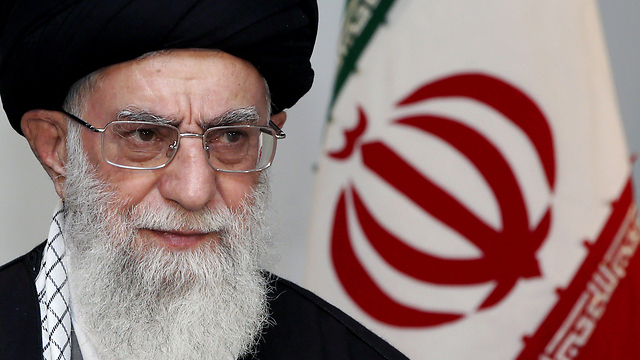After Iran gets a nuclear deal
John-Michael Kibrick/Ynetnews/Published: 06.06.15 / Israel Opinion
Obama’s comments to Israeli media reveal an unspoken truth: No strategy exists to reign in an economically prosperous Iran. Yes, Mr. Obama, the impending nuclear deal with Iran due to be signed at the end of June, if all goes according to plan, is a good deal – probably the best you’ll ever see from a negotiated solution with the Islamic Republic. It does not, as your colleague Mr. Netanyahu claims, pave the road for Iran to acquire a nuclear weapon. The US president indirectly admitted to the deal’s biggest weakness however, during an interview with Israeli media that aired last Tuesday. Obama correctly and deftly brushed aside concerns that Iran may cheat on the deal, citing an agreed upon process in which sanctions would snap back into place and no one would be worse off than they are now. But perhaps a more dangerous scenario is one in which Iran abides by the rules and sanctions are lifted. Money will funnel back into the hands of the Ayatollah who could, and judging by the past, most likely will use the new state funds to oppress his people and spread Iranian influence and power across the Middle East through the funding of proxy organizations like Hezbollah and the Houthi rebels in Yemen.
What does America have to say for Israelis who fear not only a nuclear Iran, but an emboldened Hezbollah and other destabilizing forces throughout the Middle East? “We shouldn’t assume we can perpetuate sanctions indefinitely,” came Obama’s flimsy reply. Obama’s comment reflects two truths that have not yet been openly discussed. Firstly, sanctions are unsustainable in the long run. An attempt to maintain the status quo would eventually bring tensions to a head, resulting in a messy military conflict at best and a nuclear armed Iran at worst. Both scenarios would make sanctions irrelevant. Secondly, the president’s answer confirms that in the face of unpredictable circumstances, the US has no plan against an increasingly influential Iran controlling vast territories in the Middle East fueled by their new-found economic prosperity. Iran’s actions in the wake of sanction relief are difficult to predict and under normal circumstances would be much easier to handle than a nuclear Ayatollah. Thanks to Obama’s deal however, the West will have its hands tied.
If Iran effectively turns Iraq into a vassal state, orchestrates the full and final collapse of the Lebanese government, continues funding massacres in Syria, or threatens Saudi Arabia through the victory of their proxies in Yemen, how will the US respond? Under the nuclear agreement, these actions don’t break any of the rules, but do threaten security in a region that controls the world’s oil supply and houses Israel, one of Obama’s greatest allies – despite current political tensions. If 2016’s presidential elections give way to a like-minded leader to Mr. Obama, say Hillary Clinton, resuming economic sanctions on Iran would be the preferable tool to use against the Islamic Republic, particularly after seeing how this campaign worked to bring the Ayatollah to the negotiating table over the issue of nuclear weapons.
Renewed sanctions, however, would mean the cancellation of the nuclear deal, allowing Iran to then sprint for a nuclear weapon, arguing that it must insure its security against hostile forces.
The West’s only option to avoid the invasion of Iran would be to refrain from further sanctions and fund its own allies and proxies in the Middle East, resulting in a cold war – that is, cold in the Middle East, somewhere around 100 degrees Fahrenheit. Battles would rage in Yemen, Iraq, and Syria. Iran may resume funding and support for Hamas, while Hezbollah would test Israel’s resolve with rockets and cross-border attacks in an attempt to harm America’s interests by harming her Jewish friends.
These possible scenarios paint an undesirable picture, one in which the US is locked in a battle it can neither afford to fight, or to lose. Appetite among Americans will be low for Middle East intervention of any kind and the further funding and arming of groups in the region will, as in the past, lead to more chaos, more hate and more broken lives.
Certainly, the current agreement with Iran will provide the US time to confront these new challenges that will arise. But with the end of June fast approaching, it’s time to start thinking about how the West can make the most of this historic moment in the days to come.






















